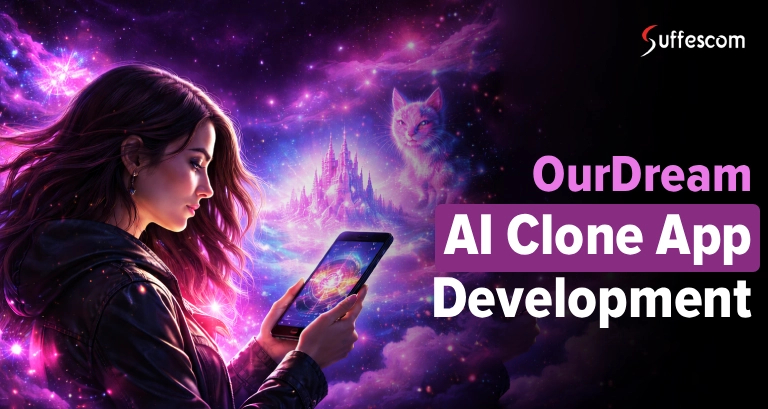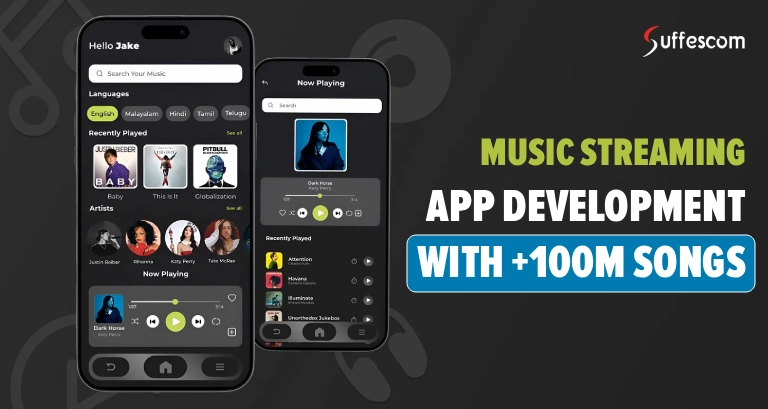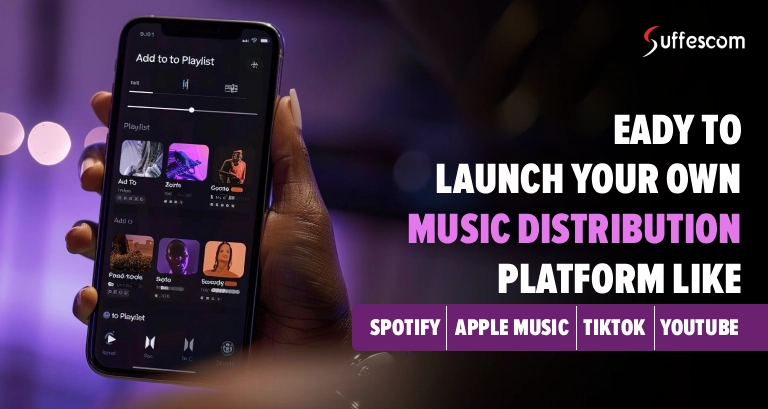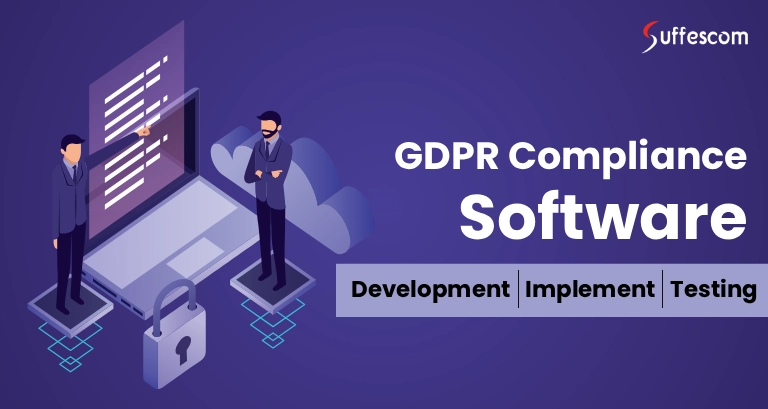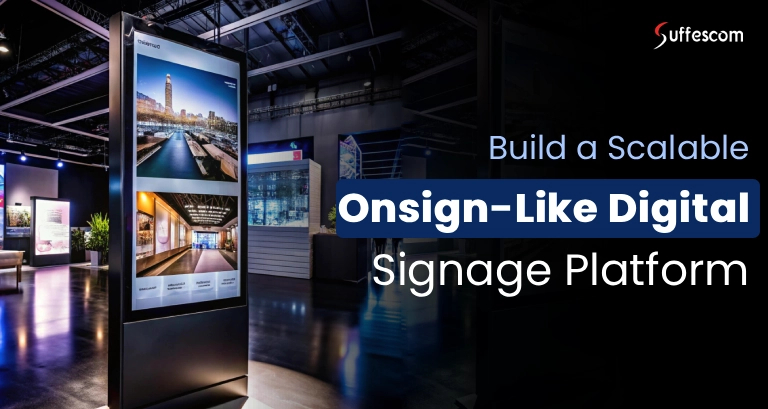Music Learning App Development: Stages, Features, Tech Stack & Costing

Music learning app development is a revolutionary concept that is swiftly gaining traction in the music education sector. These apps offer highly personalized learning experiences, tailoring courses, exercises, and feedback to each user's unique needs through advanced machine-learning algorithms. This unique application function acts as a personal tutor, understanding your challenges, identifying your skills and weaknesses, and providing instant feedback to enhance your skills. The future of music learning will be accessible, dynamic, and tailored to each student's individual needs and preferences, all thanks to these innovative apps.
With music learning app development, learners can experience high-quality, individualized learning patterns, ensuring that each session is as practical and engaging as possible. This approach enhances learning efficiency and makes the entire process more enjoyable, keeping the learners motivated and interested.
Are you considering developing your music learning app and are curious about its benefits, costs, essential features, monetization strategies, and more? So, don't wait! Just continue reading to discover all you need to know about developing a custom music learning app.
Design and Develop Your Music Learning App With Us!
Are you ready to build a music learning app that engages users and enhances their experience? Contact us today to get started with our experienced expert app development team!
Why Are Music Learning Apps Popular?
Music is a universal language that transcends borders and cultures. It can evoke emotions, inspire creativity, and foster learning. However, not each of us has the opportunity or the resources to learn how to play an instrument, read music, or compose songs. This is where music learning apps come into the picture. These mobile applications use advanced technologies to teach music skills, theory, and practice to users of all ages and levels. They are famous for several reasons, such as:
Accessibility: Music learning apps empower anyone with a smartphone, tablet, computer, and internet connection to learn music. They can be used anytime and anywhere without expensive equipment, teachers, or classrooms. Users can learn at their own pace and choose the topics and genres that interest them, giving them a sense of independence and control over their learning journey.
Affordability: Music learning apps are more cost-effective for music learners than traditional music education methods. These applications offer free or low-cost subscriptions, trails, or features, allowing users to explore and learn music without breaking the bank. Some applications offer discounts, scholarships to deserving learners, or donations to users who require financial assistance or belong to underrepresented groups.
Engagement: Music learning apps are educational tools that are engaging and fun. These applications use gamification, interactivity, and personalization to motivate and reward users for their progress and achievements. They also provide feedback, guidance, and support to help users overcome challenges and improve their skills. Some apps even enable social learning and collaboration by allowing users to share, comment, compete with other users, or join online communities and groups, making the learning journey exciting and motivating.
Innovation: Music learning apps are innovative and constantly evolving. They use artificial intelligence, machine learning, and data analytics to create adaptive and customized user learning experiences. They also use cutting-edge technologies like augmented reality, virtual reality, and blockchain to create immersive and realistic learning environments and scenarios. Some apps allow users to create, record, and edit music using various tools and features.
Stages Of App Development for Music Learning
Before analyzing a music app's main features, it is necessary to determine the main stages of the custom music learning app development process that are fundamental to advanced music apps.
Market Analyzation
Conducting market research before starting any development process is always essential, especially in the context of a music app project. Market research helps identify potential competitors, market segments, and target audiences specific to the music app industry. Analyzing the market and conducting appropriate research is critical when developing a music app idea and its features, as it provides insights into user preferences, industry trends, and potential challenges.
Technical Stack
Based on market research, marketers and developers will create the list of technical specifications that determine the leading music app features, functionalities, back-end and front-end development, APIs and third-party integrations, security requirements, scalability, and architecture. This document will set specific goals and objectives for the business projects and guide the development process in the future.
Prototype
Once the technical specifications are finalized, the next step is to create a prototype of the app. This involves using tools like Figma, Sketch, or Adobe XD to visually represent the main music app features and functionalities. The prototype helps analyze the blueprint of the entire application and visualize the user interface and experience. This will help you identify any design or usability issues in the early stages of the development process, ensuring a smoother transition to the UI/UX design phase.
UI/UX Design
The UI/UX design phase is not just another step but a critical part of the success of the music app. It's where we design the app's user interface and experience and visual design elements such as colors, typography, etc. Your input and understanding of the target audience's preferences are integral to this phase.
Minimum Viable Product (MVP)
After the UI/UX design phase, our focus shifts to creating a minimum viable product (MVP). This version of the app includes the core music app features and functionality. It's designed with a clear goal in mind-to test its viability in the market and gather user feedback.
Development
With the MVP, developers will begin coding and building the app. This phase involves developing the main app features and functionalities and its backend and frontend elements, integrating APIs, and creating a database to store user data.
Testing
Before releasing the music app, the developers should conduct testing to ensure all features are stable and secure. Such processes include functional, usability, performance, and security testing.
App Release & Support
The app can be released to the market when every previous process is complete. At this stage, fixing bugs, providing updates, and analyzing user feedback are essential. Maintaining security updates and releasing new music app features is crucial to keeping the app competitive.
Launch Your Music Learning App with Advanced Features!
Want to provide music enthusiast with a dynamic, engaging learning experience? Let’s collaborate and design a feature-packed music learning app to get maximum app downloads. Contact us and kickstart your project today.
Must-have Features of Music Learning App Development
The correct set of features is crucial for the success of your music learning app development. Here are the essential features your app must have.
1. Interactive Lessons
Most music learning apps provide high-quality video tutorials offering visual and auditory guidance, breaking down complex techniques into manageable segments. This allows users to learn at their own pace while benefiting from multiple camera angles that showcase hand positioning and finger movements. In addition to videos, written materials such as sheet music, chord charts, and exercises enhance the learning experience by promoting music literacy and theory comprehension.
2. Practice Tools
Essential practice tools are integrated into music learning apps to aid users in developing their skills. A built-in metronome helps maintain a steady tempo, with customizable settings for various time signatures. A tuner ensures that instruments are correctly tuned, which is crucial for pitch accuracy and ear training. Additionally, play-along tracks allow learners to practice with professional recordings across different styles, improving timing and overall musicianship.
3. Progress Tracking
Progress tracking is a vital feature that helps users monitor their development. Regular quizzes and skill assessments provide insights into strengths and areas needing improvement. Many apps also facilitate goal setting, enabling users to establish specific, measurable objectives, such as mastering a particular song or technique. This feature fosters motivation by visually tracking progress toward those goals.
4. Feedback Mechanisms
Advanced apps often include feedback mechanisms that provide real-time performance analysis, pinpointing mistakes, and suggesting corrections. This immediate feedback loop is invaluable for adjusting the technique. Additionally, users can upload performances for review by instructors or peers, receiving constructive comments and insights that may not be self-evident, further aiding their growth.
5. Community Features
Community features create a sense of belonging among users. Many apps facilitate forums and groups focused on specific instruments or music styles, encouraging discussions and exchanging tips. Collaborative learning opportunities allow users to share recordings, participate in group lessons, and engage in joint projects, fostering motivation and camaraderie.
6. Variety of Genres and Styles
Music learning apps typically encompass genres, from classical to modern, allowing users to explore various styles and find what resonates with them. Some apps also offer lessons for traditional instruments from different cultures, broadening users’ musical horizons and teaching unique techniques.
7. Customization and Personalization
Many apps employ algorithms to create customized learning paths tailored to users' skill levels and interests. This customization keeps learners engaged and focused on their individual goals. Adaptive learning features dynamically adjust lesson difficulty based on user performance, ensuring a balanced challenge that promotes growth without overwhelming the learner.
8. Gamification Elements
Gamification in music learning apps motivates users to practice by incorporating achievements and badges for completing lessons or mastering techniques. Additionally, challenges and friendly competitions encourage regular practice and improvement, fostering a sense of community among users.
9. Offline Mode
Many apps allow users who may only sometimes have internet access to download lessons, sheet music, and practice materials for offline use. This flexibility ensures that learners can continue their practice anytime, anywhere.
10. Access to Resources
A comprehensive library of songs, categorized by difficulty level, enables users to select appropriate practice materials. This library often includes popular songs, classical pieces, and original compositions. Furthermore, educational resources on music theory, scales, and composition help develop a well-rounded understanding of music, which is crucial for ongoing growth as a musician.
11. Integration with Other Tools
Many apps allow users to share their progress and achievements on social media, fostering motivation and encouragement from friends and family. Additionally, compatibility with MIDI controllers, DAWs, and other music software creates a more immersive practice environment, enhancing the learning experience.
Develop Your Custom Music Learning App With Our Expertise!
Create a unique custom music learning app tailored to your needs! Our experienced developers will deliver an engaging, interactive, personalized platform to inspire musicians of all skill levels. Contact us today and start development.
12. Subscription Models
Many music learning apps offer free trial periods, allowing users to explore premium features before committing to a subscription. Tiered membership options cater to different learning levels, providing varying access to content and features that meet the needs of both casual learners and serious musicians.
13. Live Lessons and Webinars
Live lessons and webinars provide real-time interaction with instructors, allowing for personalized guidance and immediate feedback. Moreover, Q&A sessions enable users to ask questions and gain insights directly from experts, enriching the learning experience and addressing specific challenges learners face.
Cost of Developing App Development for Music Lessons
Developing an Music Learning App can cost anywhere between $30,000 to $300,000. However, it is totally depends upon the scope of functionalities and features of the applications. Here is the basic price distribution of music learning app development, check what cost you higher and what lowers the cost.
| Feature/Aspect | AI Personal Music Learning App | Normal Music Learning App |
| Initial Purchase Cost | Higher initial cost due to advanced technology | The generally lower initial cost |
| Customization Costs | Additional costs for personalized lesson plans | Usually, there are no extra charges for standard lessons |
| In-App Purchases | More frequent in-app purchases for premium features | Fewer in-app purchases, mainly for extra content |
| Content Updates | Real-time feedback is often included in the cost | Updates may require additional fees |
| Feedback Features | Real-time feedback is often included in the cost | Limited feedback features without additional fees |
| Community Access | Access to exclusive communities may cost more | Standard community access typically included |
| Learning Resources | Comprehensive resources may have additional costs | Essential resources included extra for advanced |
| Technical Support | Higher level of personalized tech support | Standard tech support, usually less personalized |
| Overall Cost Over Time | Higher long-term cost due to advanced features | Lower long-term cost but may lack advanced features |
Choose the Right Tech Stack, Tools, and Frameworks for Building Your Music Learning App
As an entrepreneur, one of the most crucial aspects to consider when investing in creating music learning app development is the choice of your tech stack, tools, and frameworks. This decision carries significant weight, directly influencing your app's quality, scalability, performance, security, and user experience. The quality of your app, a key factor in its success, is in your hands. Moreover, this decision will also affect the development process's cost, time, and complexity. Therefore, you must carefully evaluate your options and choose the best fit for your app's requirements, goals, and target audience. Here are some factors to consider when choosing your technology stack tools and framework:
Type of App
It depends on whether you want to build a native, web, or hybrid app. Each option requires different technologies and tools, and each has its trade-offs. For example, if you need to create a native app, use the native languages and frameworks of the platforms you want to support, such as Swift or Objective-C for iOS and Java or Kotlin for Android. While these languages and frameworks offer the best performance and access to platform-specific features, they also require more development time and effort than web or hybrid solutions.
Features & functionalities
The features and functionalities you want to include in your music learning app will significantly impact the types of technologies and tools you'll need. For instance, if you offer audio and video streaming, recording, editing, and playback, you must choose technologies and tools to effectively support these capabilities.
Also Read - Piano Learning app Development
User Interface & User Experience
The user interface and user experience you create for your music learning app play a crucial role in its success. Depending on the experience you want to deliver, you'll need different technologies and tools. For instance, if you aim to craft a responsive, interactive, and engaging user interface, you'll need technologies and tools that support these aspects, such as Bootstrap, Material Design, Angular, React, Vue, and more.
Technologies and Tools That Suffescom Generally Use for Custom Music Learning App
The use appropriate tools and technologies is vital while developing an App development for music learning. These tools not only ensures the app runs smoothly but also helps deliver a personalized and engaging learning experience for users. Here's a breakdown of some advanced tools and technologies you might need.
| Category | Tools/Technologies |
| Front end development | React Native, Flutter |
| Back end development | Node.js, Django |
| Natural Language Processing | Google Cloud Natural Language, spaCy |
| Audio Processing | Librosa, FFmpeg |
| Cloud Computing | Amazon Web Services (AWS), Microsoft Azure |
| Database Management | PostgreSQL, MongoDB |
| API Integration | RESTful APIs, GraphQL |
| User Analytics | Firebase Analytics, Mixpanel |
Monetization Strategies for Your Music Learning App
By thoughtfully implementing a combination of these strategies, you can create a robust revenue model for your music learning app while enhancing user satisfaction and engagement.
Subscription Model
A subscription model allows users to pay a recurring fee for access to premium content and features. By offering tiered plans, you can cater to different user needs, such as basic access for beginners and advanced lessons for more serious learners. Implementing a free trial can also entice users to explore premium offerings, increasing the likelihood of conversion to paid subscriptions.
Freemium Model
The freemium model involves providing core lessons for free while charging for advanced content. This approach attracts a wider audience and encourages users to upgrade for additional features like in-depth tutorials, exclusive videos, or downloadable resources. In-app purchases can complement this by allowing users to buy individual lessons or course bundles as they progress.
Ads and Sponsorships
Integrating targeted ads from music-related brands can provide a revenue stream without disrupting the user experience. Additionally, creating sponsored content in collaboration with musicians or music educators can enhance engagement while generating income. It’s essential to ensure that any advertisements align with the interests of your audience to maintain credibility.
Merchandise and Products
Selling branded merchandise, instruments, or music accessories directly through the app can enhance user loyalty while providing additional revenue. Moreover, offering digital products such as downloadable sheet music or practice guides can create a convenient shopping experience for users looking to enhance their learning.
Affiliate Marketing
Leveraging affiliate marketing involves recommending music-related products and earning a commission on sales made through your app. By carefully selecting partners whose products resonate with your audience, you can create a mutually beneficial relationship that enriches the user experience while generating revenue.
Online Workshops and Masterclasses
Hosting paid online workshops or masterclasses with expert musicians provides users with unique learning opportunities. These live events not only generate income but also foster a sense of community and engagement within the app, as users can interact directly with professionals.
Certification Programs
Implementing certification programs for users who complete specific training levels adds value to your app. Charging a fee for assessments and certificates can not only enhance credibility but also motivate users to complete courses and improve their skills.
Community Features
Creating a premium community or forum for users to interact with instructors and peers can enhance the learning experience. Charging for access to this exclusive space encourages deeper engagement and provides users with valuable feedback on their progress.
Personalized Coaching
Offering one-on-one lessons with qualified instructors gives users personalized guidance in their musical journey. This premium service can be priced based on session length or instructor expertise, catering to learners seeking individualized support.
Gamification and Challenges
Implementing gamification through paid challenges or competitions can motivate users to improve their skills while creating an engaging environment. Charging entry fees for these themed events allows for prizes or discounts on app features, fostering excitement and participation.
Content Licensing
Licensing your app’s educational content to schools and music programs can expand your reach while providing a steady income stream. Partnering with educational institutions can enhance your brand’s credibility and help you tap into new user bases.
Donations and Crowdfunding
Utilizing platforms like Patreon allows users to support your app through donations in exchange for exclusive content or features. This approach fosters a sense of community and investment in the app’s growth, providing a viable funding source.
Contact and Discuss Your Music Learning App Development Idea
Are you looking for expert advice on creating a successful music learning app? Contact our expert team for a consultation and onboard your project today!
Why Choose Suffescom For Music Learning App Development?
Suffescom is a top-rated custom music learning app development company that stands out its commitment to excellence and quality. When it comes to develop a music learning app, here is why Suffescom would be your ideal choice:
- Decade of Experience
- Skilled Team
- Customized Solutions
- Vast Market Knowledge
- Outstanding Support and Maintenance
FAQs
How much time does developing a Custom Music learning app usually take?
Generally, music learning app development takes 6 to 12 months. However, it depends upon the project's scope and the complexities involved. We can provide a detailed project plan that outlines the development process and timeline specific to your project.
Can your team help integrate third-party APIs like Spotify or Apple Music into my application?
Of course, our team is proficient enough to integrate third-party APIs like Spotify and Apple Music into your new music learning app.
Why should I choose Suffescom instead of another app development company for my Custom music learning app Development?
At Suffescom, we not only have deep industry knowledge and experience in developing such apps but also take a comprehensive approach to creating music-learning apps that your users will love, ensuring every aspect is carefully considered.
